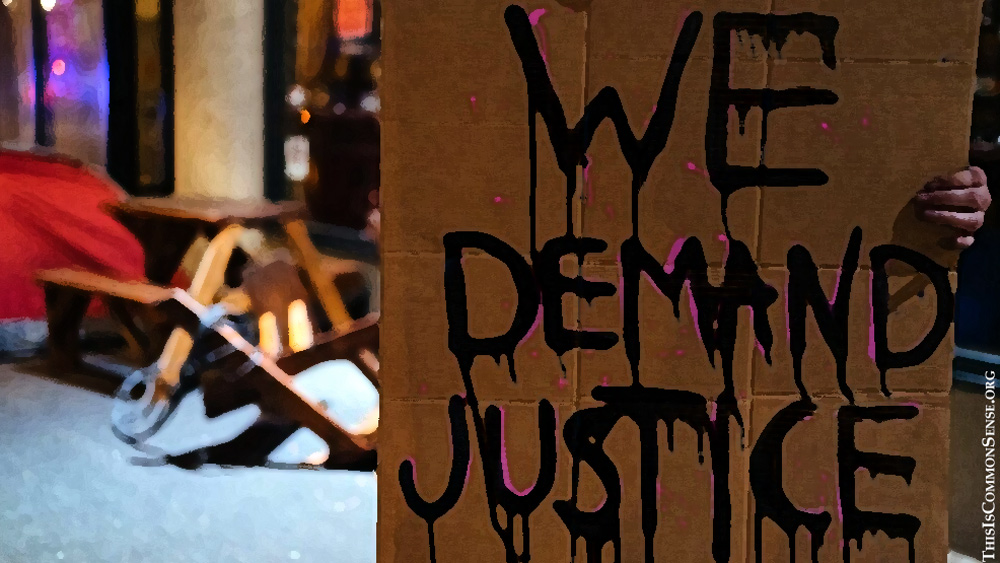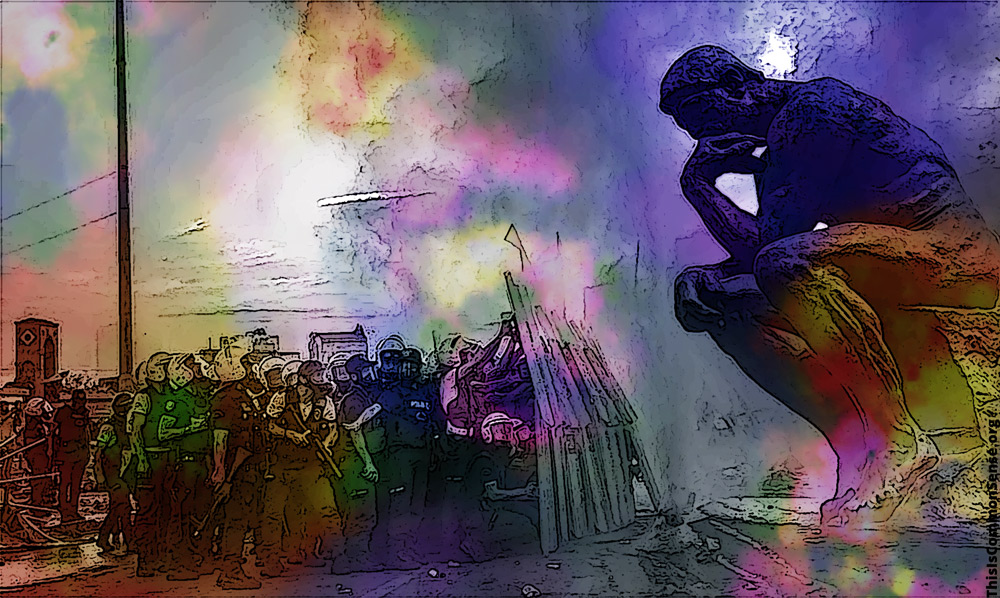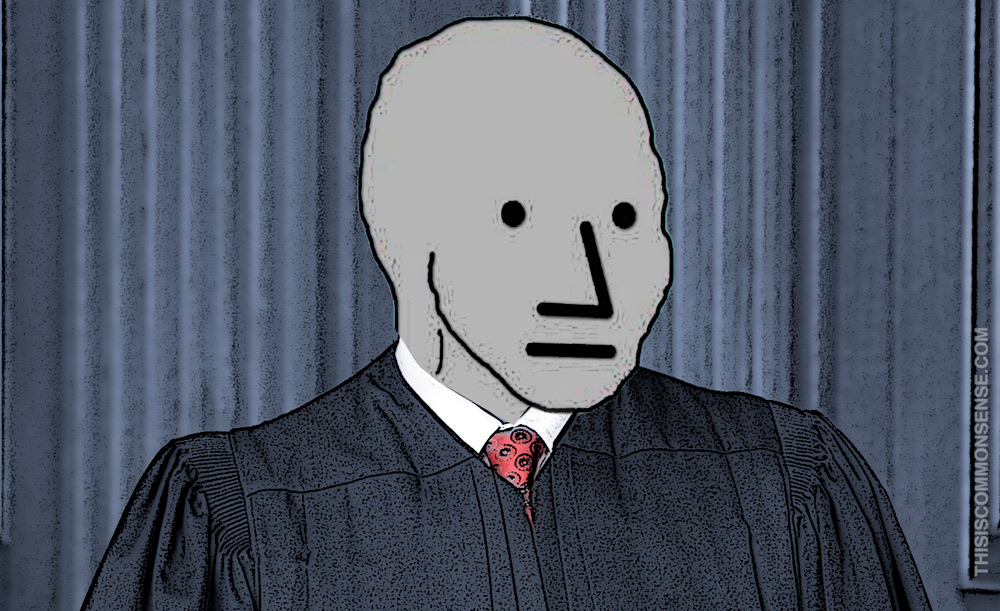“As a lifelong Portlander,” Alan Grinnell writes to the editor of The Oregonian, “I am shocked at what our city has become.”
Responding to a Steve Duin column about Portland, the “broken city,” Grinnell asks, rhetorically, “Who would have thought that our downtown would become a wasteland, that there would be homeless camps everywhere in the city, and that gangs of armed thugs on all sides of the political spectrum would run out our police?”
Duin defined the problem as one of “mob rule,” lamenting that “just about everyone I spoke to was terrified they might be the next random target of the mob.”
After months of riots and property destruction following the killing of George Floyd by police in distant Minneapolis, Minnesota, the focus of recent police and community attention turned to a house on Mississippi Street from which so-called “sovereign citizens” — the Kinney family (who are black and indigenous) — were evicted for not paying their mortgage (since 2017). Now the house is being occupied by “activists,” who have turned the area into a sort of autonomous zone — as was done for weeks this summer, dangerously, in the Capitol Hill area of Seattle.
“[I]f you live or tend shop on North Mississippi, and fear for your own safety around the local ‘security’ forces,” inquired the columnist, “what do you make of the cops’ retreat from the neighborhood?”
While many appear sympathetic with the Kinneys’ plight, the takeover by the terrorists, er, activists, is another matter entirely. One black man on reddit calls it “one big scam,” suggesting folks “ignore these loons.”
But ignoring willful lawbreakers appears to be the problem, not the solution.
This is Common Sense. I’m Paul Jacob.
—
See all recent commentary
(simplified and organized)









